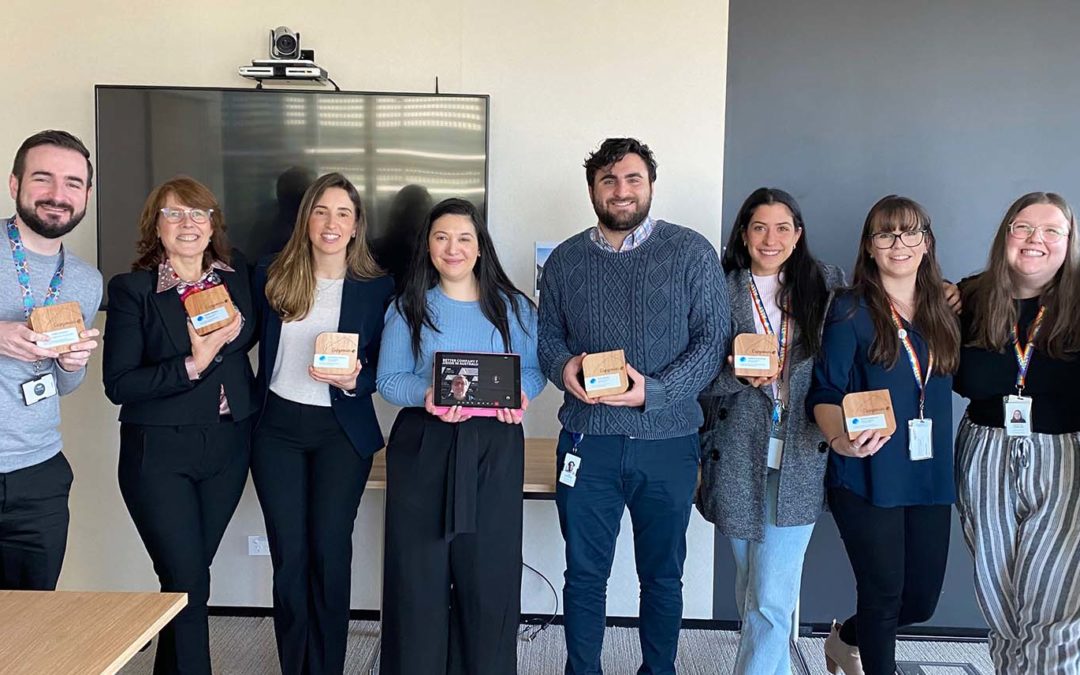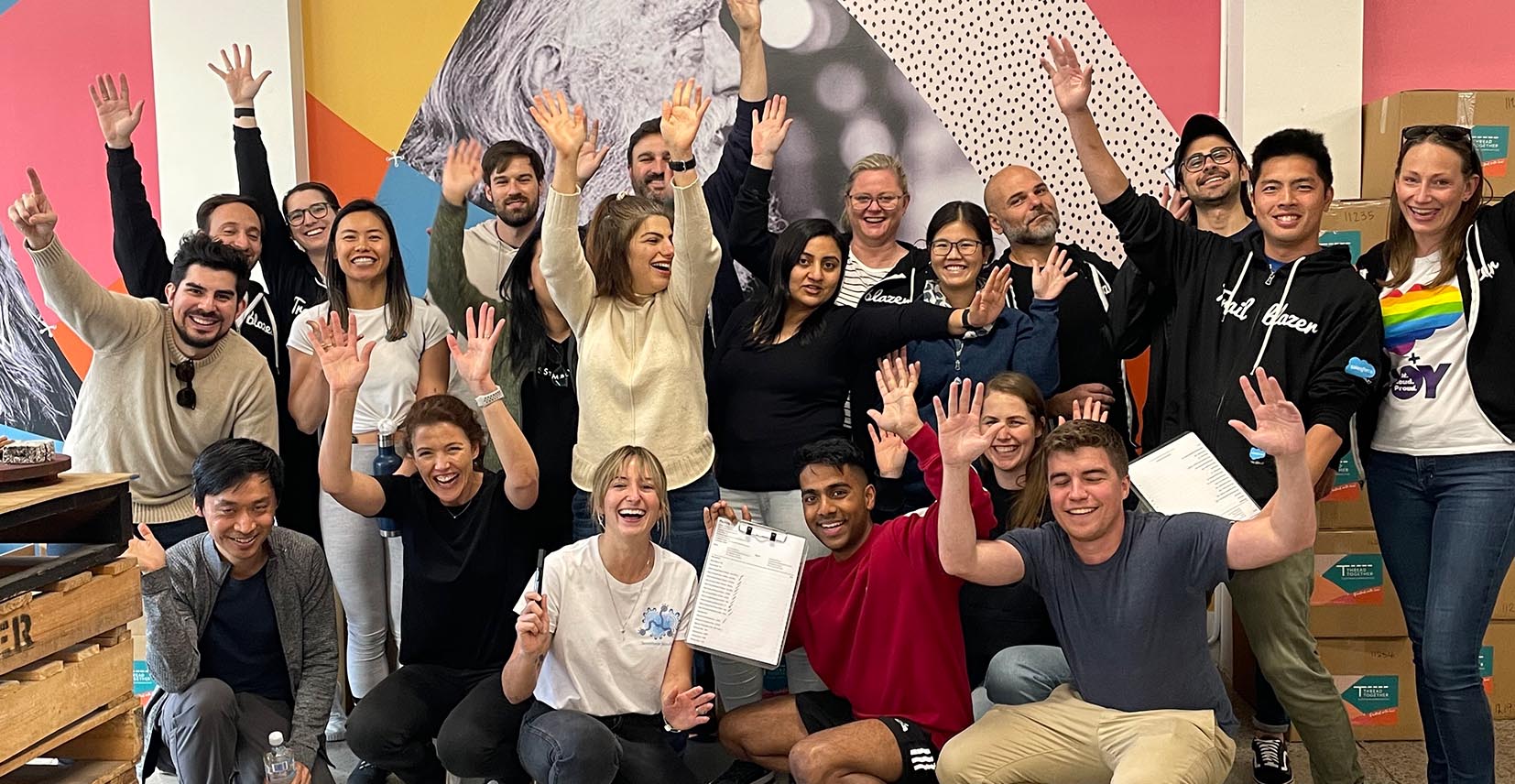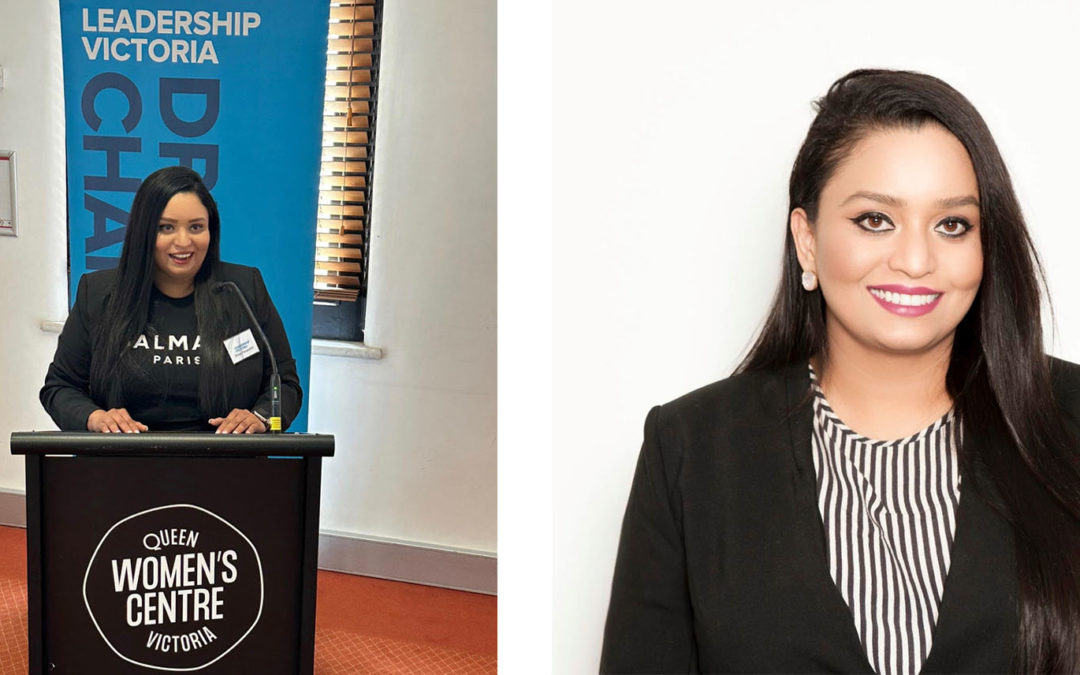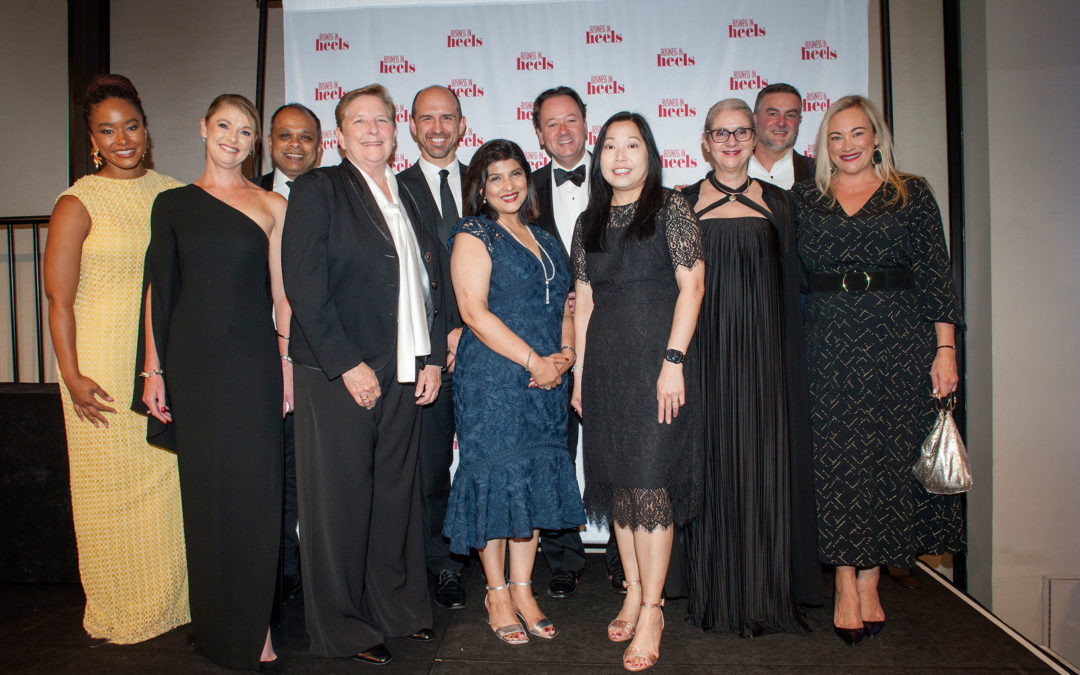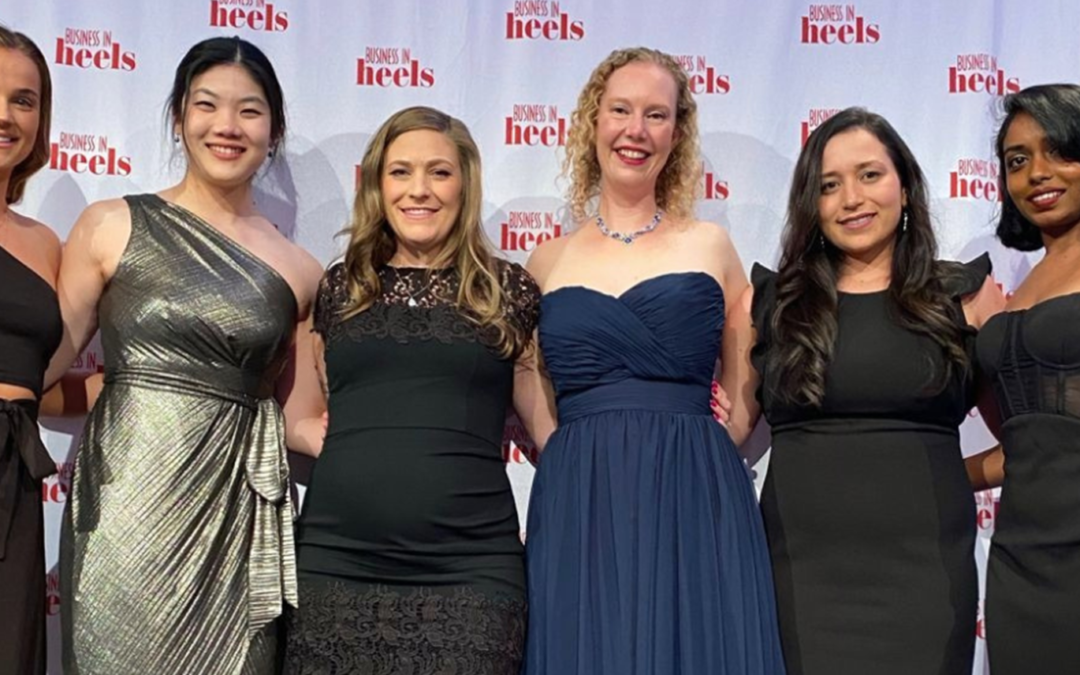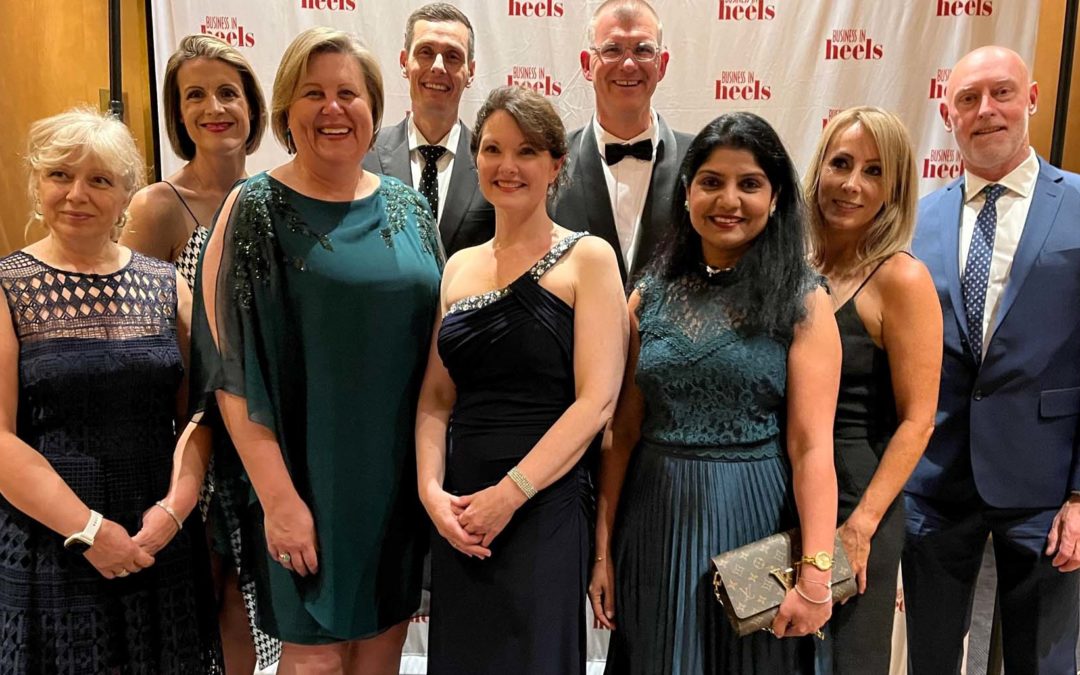
Paying it forward
Being a good role model often means having a great role model
For ANZ executive Sharon Samson, the secret to her success in being a strong role model was having a great teacher.
Sharon is recognised for her consistent investment in supporting women within the technology side of the bank and at Go Girl Go for IT, a technology conference for schoolgirls between years 5-12.
When asked what drives her, she returns to her formative school days. For her, the interest in IT was ignited by her teacher, Jennifer Orford, and an area she saw she could thrive in. Sharon lovingly describes Mrs Orford as “a quintessential technology teacher, a ‘nerdy IT’ person at the heart who was the most wonderful role model”. Jennifer gave Sharon the strength and conviction to “do it” and be proud of mastering the subject. It wasn’t until Sharon went to university that she realised many other girls did not feel the same about IT and she became even more determined to make a difference in this powerful sector.
Sharon always felt her career could have gone one of two ways. Into the technology space, as her career has panned out, or as a secondary teacher, following in her role model’s footsteps. So it’s no surprise she loves to encourage young girls to pursue an IT career.
Go Girl Go for IT is the largest free event held in Victoria for schoolgirls from grade 5 to year 12. Thanks to Sharon’s influence, ANZ is a diamond sponsor, and she is the key liaison between the bank and the event. This involves co-ordinating over 150 of her colleagues who volunteer to support the event in conjunction with organisers Vic ICT for Women. The event reaches 1500+ students with the goal to inspire girls towards a STEM career.
Sharon is proud they have been able to deliver this support for a number of years. Though it’s not easy, she knows she is making a difference as she is often contacted on LinkedIn by former attendees who are now pursuing careers in IT.
Sharon’s career started in Imperial Chemical Industries (now Orica), where she was the only woman in an all-male team. Luckily, her boss encouraged and welcomed her voice. It was in this environment she learnt to “have a presence” and the importance of being heard, ideals which she has used to be successful across the span of her career. Today at ANZ bank, she holds the role of Technology Domain Lead Corporate Services and is excited by the prospect of being able to encourage more women.
Throughout her career, Sharon has been a champion for women. She finds it is often fear holding them back. Sharon is a great listener who loves to uncover what the biggest fear is and help the person reframe and deal with it. She feels she has learnt through adversity to take a risk. Her mantra reflects this: “How bad can it be?” For her. the worst thing is to let fear hold you back and not to try.

Since joining ANZ in 2006, Sharon has helped develop other avenues to pursue her passion in supporting women in Technology.
Sharon has been a contributing member and more recently a leader within the ADA Network, named after the world’s first Computer Programmer, Ada Lovelace. The group was formed in 2017 with the aim of increasing the participation of women in technology. The network has grown to include approximately 450 allies and volunteers across the bank who champion the participation of women in technology. This supports a suite of events, mentoring and sponsorship all aimed at attracting, retaining, and growing talent.
Soon after the formation of the ADA network, it was recognised dedicated resources, coupled with a strong volunteer network, would be needed for diversity initiatives to be achieved in line the ANZ purpose and values. Enter the THRIVE Squad, a team of people employed to support not only the Go Girl Go for IT program and the ADA Network but also guide a return-to-work program, as well as provide opportunities for those with autism, all abilities and indigenous peoples. THRIVE allows the ANZ employees to support their passion projects as mentors, allies and sponsors. The results have been amazing.
- The early talent recruitment of graduates and interns is now at 52% female participation.
- The Return-to-Work program has a 92% female participation and 95% retention rate.
Return-to-Work was introduced in 2019. It provides the opportunity for people who have taken a career break of two or more years in India, Australia and New Zealand to join ANZ’s Technology Team. It allows people to reskill and transition back into the workforce. This program has contributed to ANZ achieving family-friendly workplace accreditation. Why does the bank bother? “To shape a world where people and communities thrive,” says Sharon, repeating the bank’s purpose.
For Sharon, Return-to-Work has been incredibly successful in encouraging more women to join the Technology Team. She loves being able to encourage women to enjoy working in a career area which has brought her so much satisfaction.
When asked what advice she would give to others, she says, “If you feel you aren’t ready, just take a (deep breath) and do it.” And for those hesitating about taking on a mentoring role, Sharon says, “The reward is far greater than the perceived burden. I’m so grateful for the role models I’ve had in my career and I love paying it forward by supporting others.”
If you would like to learn more about the other finalists then click this link.

